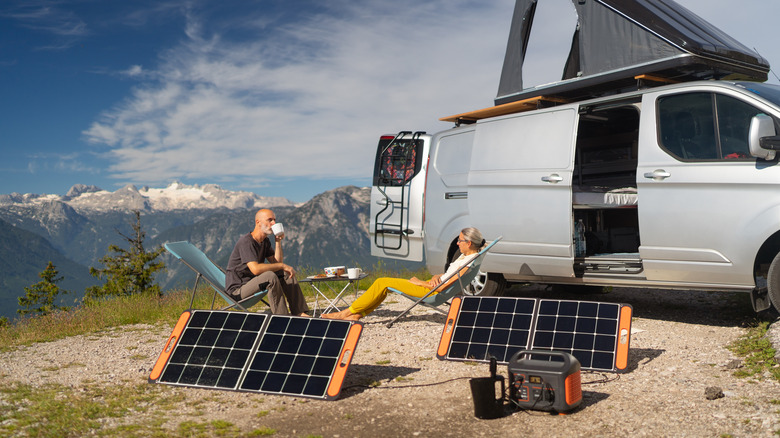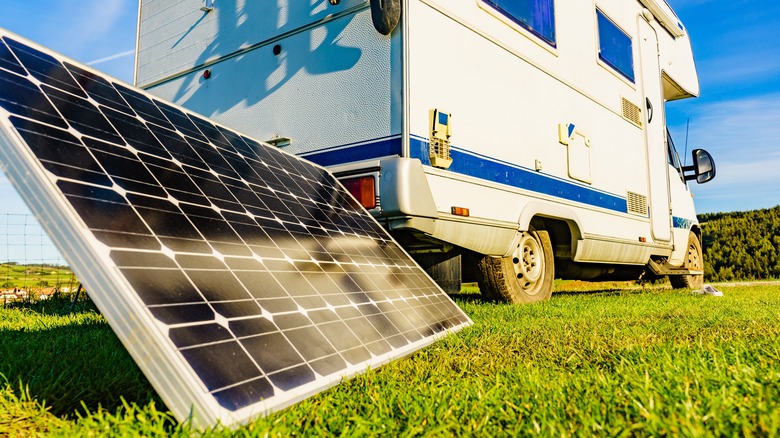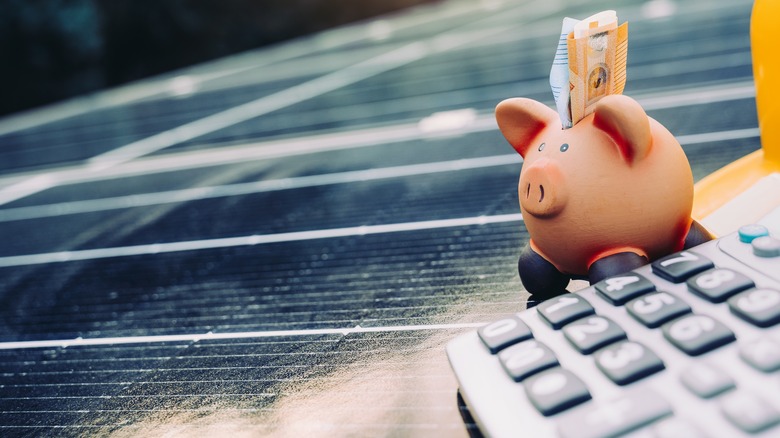Are Portable Solar Panels Worth It? Here's What You Should Know
More than four million homes in the United States have rooftop solar panels, according to data compiled by Solar Insure. Being that the average solar-powered home typically sports between 25 and 30 panels, there are between 105 and 126 million solar panels installed across the country. Projections suggest these numbers will continue to increase over the next decade.
Though there are some hidden costs associated with solar panels that you should be aware of, it's indisputable that installing them pays off in the long run. Still, solar panels are not exactly practical, and it's not like everyone owns a home they can modify as they wish. Besides, what if you just don't have the budget for a residential solar panel system, or travel a lot and need a more convenient solution? That is exactly where portable solar panels come in, as a flexible and affordable option for converting sunlight into electrical energy on the go.
What you need to know about portable solar panels
The biggest and most obvious advantage of portable solar panels is that you can move them anywhere, but the potential benefits extend far beyond that. For a start, the average residential solar panel system will set you back around $25,000. If you qualify for the solar panel tax credit, you might be able to save a nice chunk of change, but we're still talking about a substantial investment. The more high-end portable solar panels, conversely, cost a few hundred dollars.
Portable solar panels require essentially no installation: you just unfold the panel (if necessary), place it in a sunny spot, and that's about it. You don't need to hire a professional to set things up for you. In the vast majority of cases, you won't need a planning permission or anything of the sort either. Also, portable solar panels don't require too much maintenance, apart from regular cleaning and such.
You definitely can't power your home or charge your electric vehicle with a couple of portable solar panels, but there's not what they're meant for anyway. Here's what that means, in more practical terms. For example, with a powerful, 400-watt portable solar panel, you can generate between 2.4 and 2.8 kilowatt-hours of electricity on a sunny day. Meanwhile, a 200-watt panel, produces between 1.2 and 1.4 kilowatt-hours of electricity. In other words, with a typical portable solar panel, you can charge a couple of smartphones, or a laptop, or even power a small appliance, like a toaster or a microwave.
Are portable solar panels really worth it?
So, are portable solar panels really worth the money? Depending on your needs and lifestyle, they might be. If you're someone who enjoys spending time outdoors, investing in a portable solar panel is a no-brainer — they're useful, lightweight, environmentally friendly, and ultimately pay for themselves over time. Also, portable solar panels are perfect for camping, since they are easy to set up and typically produce more than enough electricity to charge handheld devices.
On the other hand, if you're not exactly a nature enthusiast, portable solar panels might not be the best option, as affordable as they are. With that being said, if you're thinking about switching to an alternative energy source, and aren't fully sold on solar power, it might be a good idea to get a smaller, mid-range mobile solar panel and test the waters at home. In any case, there are some common myths about solar panels that you need to know about before making any purchasing decisions.


